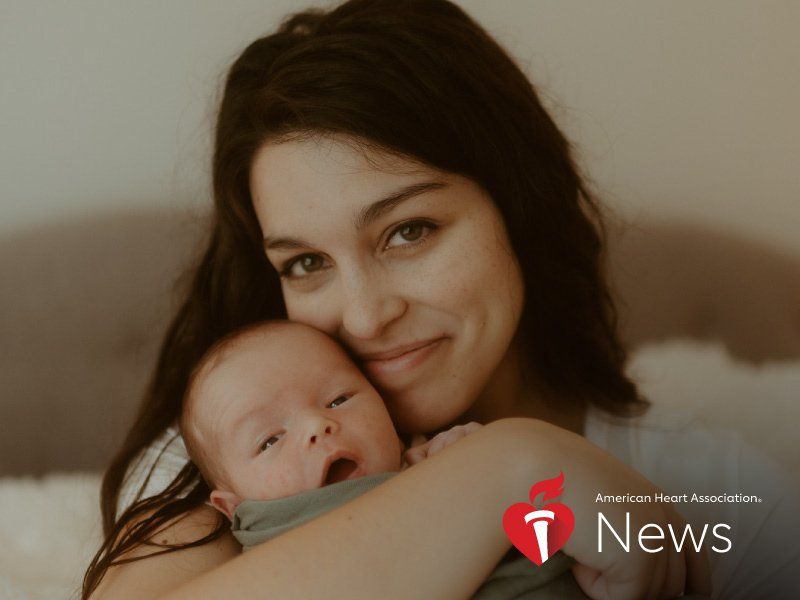
THURSDAY, May 25, 2023 (American Heart Association News) — Alexis Simon, a special education teacher in the greater Pittsburgh area, was having a routine morning at school, sending an e-mail at her desk. The next thing she knew, she woke up at a hospital, disoriented and panicked.
“Is my baby OK?” Simon, who was 8 1/2 months pregnant, asked the doctors.
The baby boy, Dominic, indeed was born healthy, three days after his mother’s cardiac arrest in December.
Simon has no underlying heart disease or other health problems, and various tests at the hospital came back normal. Doctors were baffled as to why she suddenly slumped over in her chair at Trafford Middle School.
“It was like someone just turned my switch off,” said Simon, 29.
When Simon became unconscious – thankfully, no kids were in the room – a colleague in the room with her yelled across the hall to the guidance counselor, who called the school nurse, Rhaeann Shepler. Shepler rushed to Simon’s room and began CPR. She told another colleague to get the automated external defibrillator, or AED, from the nurse’s office. When he brought it, she used the device to restart Simon’s heart.
Shepler, who has been a nurse for about five years, had observed CPR and been trained, but she had never performed it herself. She knew the situation was grim: Less than 10% of people survive a cardiac arrest outside of the hospital.
“I would be lying if I said I wasn’t nervous,” Shepler said. “It’s a game changer when you know the person and you’ve worked with them.”
By the time paramedics arrived, Simon had been revived. But she doesn’t remember anything before waking up in the emergency room and seeing her husband, Dan, sitting beside her.
After an initial exam at the nearest ER, doctors discovered that Simon’s potassium levels were very low. They suspected that was what caused her cardiac arrest. Simon was transported via helicopter to another hospital with a high-risk obstetrics unit. She was given potassium treatments around the clock for about a week.
Simon is now at home, enjoying maternity leave with her new baby. She feels fine, but her condition is being closely monitored. She uses a wearable defibrillator and sees a cardiologist, nephrologist, electrophysiologist, maternal fetal medicine specialist and hematologist.
“It’s hard enough as it is being a new mom, and then being a new mom with unknown health concerns,” Simon said. “I wasn’t planning on spending my whole maternity leave wearing a defibrillator and going to all these doctor appointments.”
Still, after weeks of fear that it might happen again, Simon feels fairly at peace now and confident that her cardiac arrest was a pregnancy fluke.
“I try to focus on Dominic. He’s the best thing to come from this,” Simon said. “We’re just so grateful that he’s OK. He’s a miracle.”
Simon calls Shepler her guardian angel. To Shepler, the big lesson of this story is that everyone should know CPR.
“It just shows you that it can happen to anyone, anywhere,” Shepler said. “I’m very thankful for the outcome, and I only hope that this inspires people to learn CPR, because it can make all the difference.”
American Heart Association News covers heart and brain health. Not all views expressed in this story reflect the official position of the American Heart Association. Copyright is owned or held by the American Heart Association, Inc., and all rights are reserved.
By Kellie B. Gormly, American Heart Association News

Leave a Reply